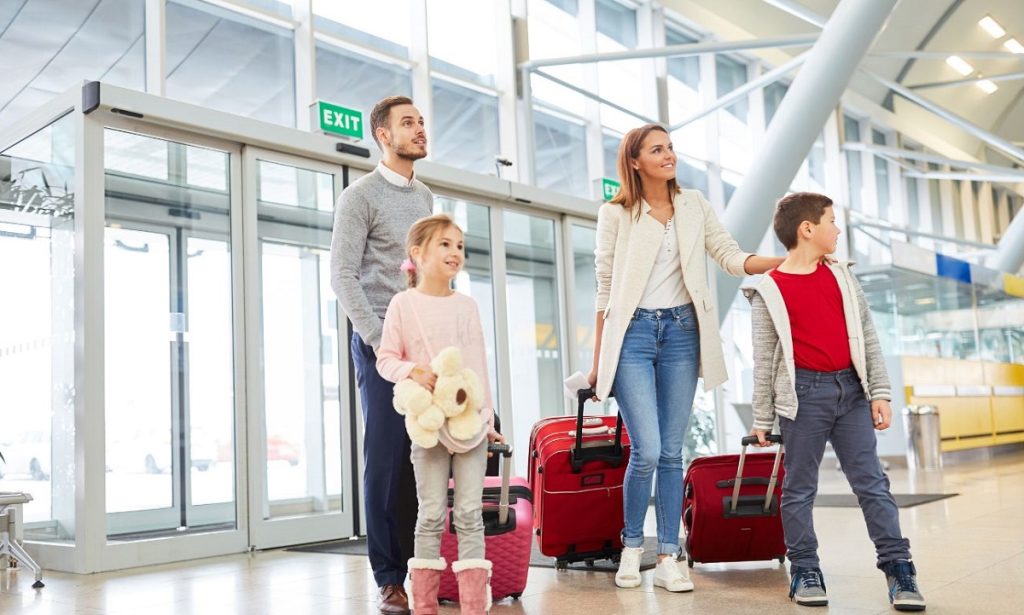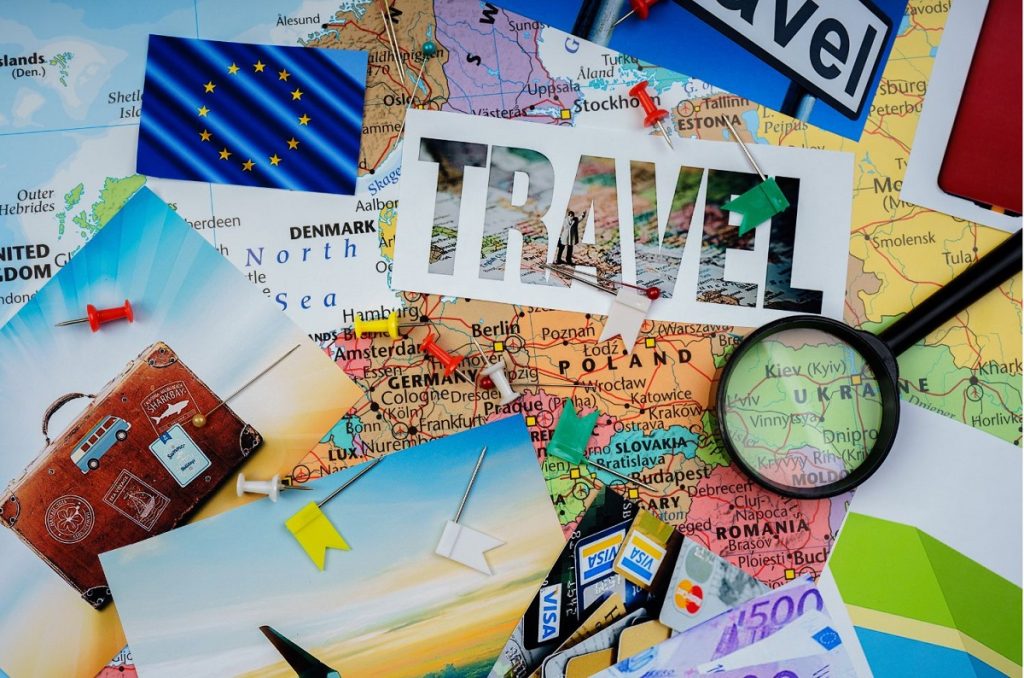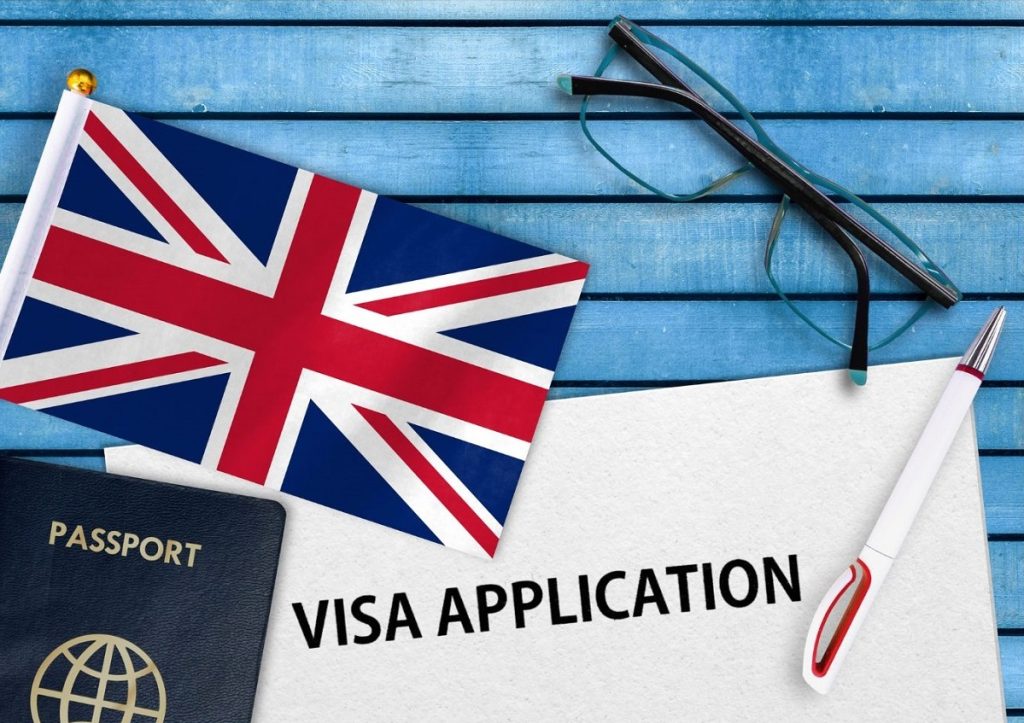Digital nomads with children can enjoy working remotely in a foreign country and provide excellent intercultural experiences for their kids. Doing so, however, requires planning to ensure a stable lifestyle for the family, provide for the children’s educational needs, and meet visa income requirements.
The stereotypical digital nomad is a person with no ties to keep them at home. Often single and unattached with a flexible job, digital nomads typically pick places that are affordable and appealing to them and go off to work there remotely for a few years. Statistically, they then return home. What about digital nomads who are married, perhaps with children? Can the digital nomad life work for those with families?
The short answer is “yes.” Sharing experiences in a foreign country with a significant other can build memories that will last a lifetime. Exposing kids to different cultures broadens their horizons. As long as you obtain housing with enough room to accommodate the kids and provide home office space for yourself (and a spouse), if they will be working, you are good to go.
Working remotely as a digital nomad requires fast, reliable internet to work, affordable housing, and access to medical care. With a family, these things remain the top priorities. Needless to say, the more people accompanying the digital nomad, the more additional things there are to consider and the more planning you need to do.
Here are five things to consider if you are a digital nomad with children.

1. Can you go anywhere as a digital nomad with a family?
Kids are welcome anywhere, but as a parent, you have to decide on what makes a good environment for a child. Will they be safe in the place you’d like to nomad? Will the environment be welcoming? Will you be able to meet their physical, emotional, and educational needs? What are the safest places to be within the areas you choose?
Fortunately, there is plenty of information about housing, schools, medical care, and other things a family needs online. While you can’t research every contingency, you can get a good handle on how to get what you might need for your child once you go abroad.
This is a serious concern if you have a special needs child who needs medical treatments or other interventions. You must research the availability of facilities to meet the child’s needs. When planning where to live, you should find a place with easy access to facilities and a reliable infrastructure to reach what you need.

2. Are the kids on board with trading their lives in the U.S. with life on the road?
Kids may be excited about traveling but become anxious about losing touch with friends and family.
Many digital nomads with kids verify that younger children are easier to move abroad. Older children will benefit greatly from the experience but present more challenges to ensure that their education is rigorous enough to prepare them for college or the next stage in their lives. They also need to build strong ties with peers.
Being a digital nomad is temporary, as most countries limit your stay. If you have a family to consider, choose a location where you can stay put during your time away. You may plan on taking side trips to see area attractions, but your concern remains to provide a stable home for your child.
Some nomads are transferred to a country from abroad. Companies often pay for shipping household goods and possessions to the new home, making the new location homie and familiar. Being taken away from their friends, a familiar school, their pets, and most of their prized possessions can be tough, but having some favorite items nearby can be reassuring.

3. How can digital nomads with children manage their education?
Enrolling your children in a foreign school can be challenging, especially if they are not well-versed in the native language. Even if you stay in an area for an entire school year, the prospect of getting the kids adjusted to a school setting and then moving again is disruptive.
Some families handle this by homeschooling, which can ultimately yield a homeschooling certificate equivalent to a high school.
Others resort to “world schooling” approaches that blend online learning, home education coaching, mentoring, and local in-person experiences. Options such as digital nomad academies like Khan Academy Kids and FluentU can work anywhere you go.

4. Does the digital nomad visa cover a family? If you are unmarried, does it allow for a significant other?
Most countries that offer digital nomad visas and other visas that cover tourists, remote workers, and workers for foreign companies allow you to apply with family members. Some countries, such as Hungary and Panama, require separate applications for each family member.
Getting a visa for a spouse is relatively easy and may just require presenting your marriage certificate. Those in a relationship with someone might be considered a defacto couple, but applicants need to prove the existence of a relationship by sharing photos, bank statements, and other evidence that they are a couple.
Children accompanying digital nomads must be financially dependent on them; independent grown children can’t enter a foreign country on a family visa. Applicants must present the birth or adoption certificates as proof of the relationship.
Many applicants contact an immigration lawyer or an entity like Nomads Embassy for help securing a visa for the family.

5. How does having a family present alter the income requirements?
Countries that welcome remote workers and their families want assurances that they can support themselves while in the country. Most countries require digital nomads to verify their income by showing payroll stubs, bank records, or tax returns.
Having dependent family members in the country with them increases costs, so the income requirements for families are higher.
In Spain, for example, digital nomads must prove an income of twice the minimum monthly minimum wage of $1,340, so $2,680 per month or a little over $32,000 per year. For one additional family member, the nomad must show an additional 75% of the country’s minimum wage or $1,000 more, plus 25% or $335 per month per additional person. This multiplies out to monthly earnings of $4,350 or $52,200 per year.
Most other countries have similar requirements. Some countries, such as Iceland, have particularly high income requirements. You need over $7,777 per month for an individual or $11,667 for a couple.
Visa applicants need to verify that they have appropriate health insurance valid in their destination. Some countries also require a bank balance that shows their ability to pay for a few months in the country if their income source fails.
Aside from meeting countries’ requirements for traveling families, it makes sense to have a contingency fund as a buffer. Any digital nomad should have this, but it is even more necessary to plan for emergencies with kids.

Living as a digital nomad can be an exciting experience that bonds families and makes memories for a lifetime, as long as you plan carefully, you can make it happen.


